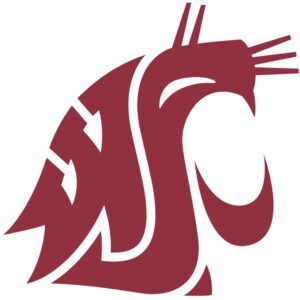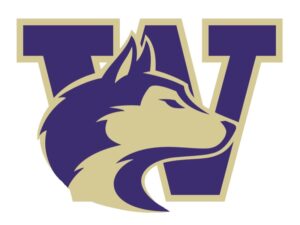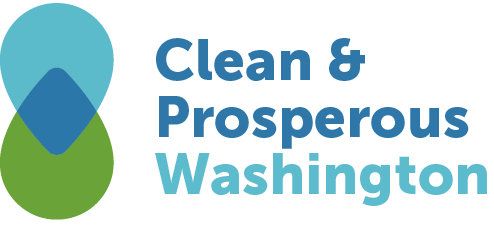Back to School, Part 1
Accelerating the transition to a clean, globally competitive economy is a job for governments and businesses, as well as non-profits, communities, and individuals.
As students head back to school, let’s consider the role of universities.
Bryan Alexander, higher education futurist and author of Universities on Fire: Higher Education in the Climate Crisis says in this interview,
 “The human capacity for invention and innovation encourages me, giving rise to new possibilities for post-carbon society. Every week we see new ideas and projects for everything from new battery technologies to carbon storage mechanisms, plant-based food to ways of avoiding unjust measures, new ways of telling climate stories to understanding how the human psyche might change as the climate transforms. Higher education clearly plays a role in this innovation ferment, from educating and inspiring people to conducting research and development. Academia’s commitment to imagination and empathy is surely a powerful ally to humanity’s vast struggle.
“The human capacity for invention and innovation encourages me, giving rise to new possibilities for post-carbon society. Every week we see new ideas and projects for everything from new battery technologies to carbon storage mechanisms, plant-based food to ways of avoiding unjust measures, new ways of telling climate stories to understanding how the human psyche might change as the climate transforms. Higher education clearly plays a role in this innovation ferment, from educating and inspiring people to conducting research and development. Academia’s commitment to imagination and empathy is surely a powerful ally to humanity’s vast struggle.
Above all, academia itself gives me hope. Think of it: an institution devoted to preserving and creating learning, and sharing that through teaching, publication, and outreach. Colleges and universities are, among other things, precious nodes for humanity’s intelligence and imagination. Roughly 20,000 colleges and universities exist around the world, a glorious realm of knowledge, exploration, and possibility. Think what we academics could contribute to save the world in this vast crisis!”
Washington state is home to dozens of four-year universities and colleges, and all are educating, inspiring, and innovating to address the climate crisis.
Among the many examples of research and innovation happening on campus, are:
The University of Washington’s Clean Energy Testbeds, an “open-access Willy Wonka factory that transforms ideas and innovations into next generation, clean-energy commodities”. According to the University,
 In 2013, as a complement to Inslee’s Clean Energy Fund, the UW established the Clean Energy Institute, a collaborative, interdisciplinary academic hub aimed at discovering new ways to harness clean, scalable and equitable energy solutions and to help industry partners bring these solutions to the marketplace.
In 2013, as a complement to Inslee’s Clean Energy Fund, the UW established the Clean Energy Institute, a collaborative, interdisciplinary academic hub aimed at discovering new ways to harness clean, scalable and equitable energy solutions and to help industry partners bring these solutions to the marketplace.
And, with direct Clean Energy Fund investment in 2017, the UW opened the CEI’s Washington Clean Energy Testbeds, a high-tech lab that has become a portal for researchers and industry partners to collaborate on clean energy solutions through cutting-edge technology, state-of-the-art materials development and scalable production techniques.
“The Testbeds provide the bridge for those technologies to get over that first chasm from lab experiments to pilot demonstration,” said Rick Luebbe, CEO of Group14 Technologies, a battery materials company that continues to use the facility’s equipment to expand its technology platform.
Housed inside a plain, former manufacturing plant next to University Village, the Clean Energy Testbeds give clients laboratory, computing and manufacturing capabilities, supported by UW experts.
“We have a huge opportunity to meet our climate goals, but also implement new technologies, develop new technologies. And we need a partner who can bridge that research and commercialization gap,” said Brian Young, the state’s clean energy economic development lead. “That’s the Clean Energy Testbeds. That’s the University of Washington.”
The Washington State University Tri-Cities Institute for Northwest Energy Futures is a new research center located on the WSU Tri-Cities campus to “help address the increasing demands for resilient, affordable, and available low-carbon electricity and transportation fuels”. The Institute will research innovation in biofuels, next-generation nuclear reactors, power transmission on the electrical grid, energy storage and batteries, and green hydrogen fuels. According to the University,
 The institute is currently developing industry partnerships for energy systems research and fostering community discussions for policy development at the state and national levels. The institute is also developing curriculum to support future workforce needs across various energy sectors.
The institute is currently developing industry partnerships for energy systems research and fostering community discussions for policy development at the state and national levels. The institute is also developing curriculum to support future workforce needs across various energy sectors.
The institute will assist local energy stakeholders with the research and analytics to better understand and manage the interrelationship between emerging clean, net-zero emission energy sources and technologies and the impacts on current energy systems, the economy, natural resources, and public policy.
“We see INEF’s effort as not only helping policy makers assimilate the pieces of our reimagined energy puzzle, but also as an opportunity to build upon WSU’s considerable multi-campus, multi-disciplinary research, education and service initiatives in the energy space,” said Sandra Haynes, WSU Tri-Cities chancellor.
If you’ve been to Pullman, you’ve heard of “Cougar Gold”, the award-winning sharp white cheddar cheese developed decades ago by WSU professor Norman Shirley Golding. Coming soon, could there be “Cougar Concrete”? Washington State University earned a $3.2 million grant from the U.S. Department of Energy’s Office of Energy Efficiency and Renewable Energy to fund the university’s “breakthrough” carbon-negative concrete. According to the researchers,
The key to the breakthrough lies in the use of biochar, a type of charcoal made from organic waste that is known for its ability to absorb carbon dioxide from the atmosphere. In their proof-of-concept work, the researchers infused regular cement with biochar that had been strengthened with concrete wastewater, a type of waste material produced during concrete production.
The researchers found that the biochar was able to absorb up to 23% of its weight in carbon dioxide from the air while still achieving a strength comparable to that of ordinary cement. The research was led by doctoral student Zhipeng Li and is reported in the journal, Materials Letters.

Graduate student Zhipeng Li and Professor Xianming Shi.
“Decarbonizing our nation’s industrial sector is critical to achieving our climate goals,” said Senator Murray in a news release. “It’s exciting that Washington state is continuing to lead the way in innovative research to help us tackle the climate crisis—and I want to congratulate WSU for being among a select few to receive funding awards in this competitive grant process.”
Go Cougs!

Go Dawgs!

If your school is doing something to accelerate the clean economy transition, let us know on Twitter or LinkedIn.
